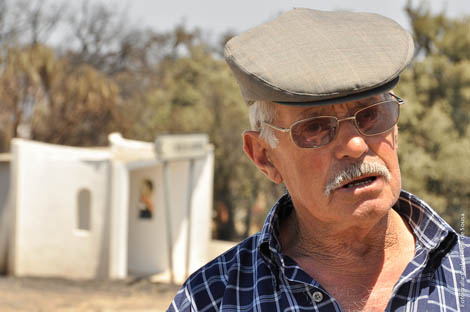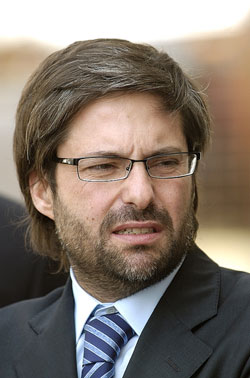 The Social Security Institute and the Town Councils of Tavira and São Brás de Alportel signed this Monday commitment protocols for "special" Local Social Development Contracts, which will allow us to start recovering houses in Serra do Caldeirão from next month .
The Social Security Institute and the Town Councils of Tavira and São Brás de Alportel signed this Monday commitment protocols for "special" Local Social Development Contracts, which will allow us to start recovering houses in Serra do Caldeirão from next month .
This is a procedure that allows taking another step in the aid that began to be given last Friday, at a time that the Government says is "record", in situations of this nature.
Last week, the State already made the first money transfers to help those who suffered damage from the fires that ravaged these two Algarve counties in July and asks those who have not yet submitted requests for support to do so.
The appeal was made by Secretary of State for Social Security Marco António Costa, who presided today, in Faro, to the signing of contracts session, an occasion that the member of the Government took advantage of to refute the accusations that the support is taking too long to arrive.
“There has never been another aid process before this one where the response has been given so promptly and effectively. I was analyzing the records relating to the fires of 2003, 2005 and 2009 and in all of them it took months, if not years, to allocate support and many never got to see the money», he revealed.
In the case of last month's fires, that will no longer happen, at least with regard to 50 families, who, together, received an amount of 35 euros in additional support. In practice, this is a one-off subsidy for those who have been left in a “situation of economic vulnerability” as a result of the disaster, in the amount of “419 euros per member of the household”. By the end of this week, "we hope to support the rest of the families", as a total of 60 families have received requests.
 According to Marco António Costa, there will be more families who may benefit from the support, but who did not submit the request, because there were many affected people who did not bother to ask for support, given the history of bureaucracy in the past, than the member of the Government evoked.
According to Marco António Costa, there will be more families who may benefit from the support, but who did not submit the request, because there were many affected people who did not bother to ask for support, given the history of bureaucracy in the past, than the member of the Government evoked.
This complementary support is granted only once, without prejudice to other aids, such as damages that are covered by CLDS (recovery of first homes) and those that will be covered by one-off support (intended to compensate for losses in contents ). Support in the agricultural and forestry area is also planned, which should be included in the European Proder programme.
The Secretary of State for Social Security placed the emphasis on "mutual trust" between the stakeholders and wanted to make it clear that he is in tune with the local government, in this case the mayors of Tavira and São Brás, Jorge Botelho and António Eusébio. For this, he broke the protocol and insisted on being the first to speak, after the signing of the protocols, so that the mayors present could “deny”.
Neither of the two mayors (both from the PS) denied the member of the Government and even praised his performance in this process. As Marco António Costa stressed, only 20 days have passed since the first meeting between the mayors and the Government, in Lisbon and there is already money in the accounts of the affected people. This was made possible by the procedure adopted, which allowed representatives of local authorities to adapt the solutions to the problem.
The key element that allowed us to streamline the process and bypass a lot of bureaucracy was the use of the CLDS model to respond to a calamity situation “something that had never been done before”. "I sent the basic model to the mayors and asked them to make suggestions," said the member of Government.
“The first time I read CLDS, I was very apprehensive. I feared that we would not be able to support even one person. I pointed this out at the next meeting and it was adapted. I imagine that it was not easy to change the norms of a process that was very bureaucratic», confessed António Eusébio, in his speech, praising the speed with which complementary support was released.
Jorge Botelho also praised the member of Government and the agility he gave to the process. “I don't remember any process in which 20 days later people were receiving the first transfers”, he confessed, something that is more significant considering that he was the regional director of Social Security before being elected mayor of Tavira. "Everything we've agreed so far has been accomplished," he added.


















Comments